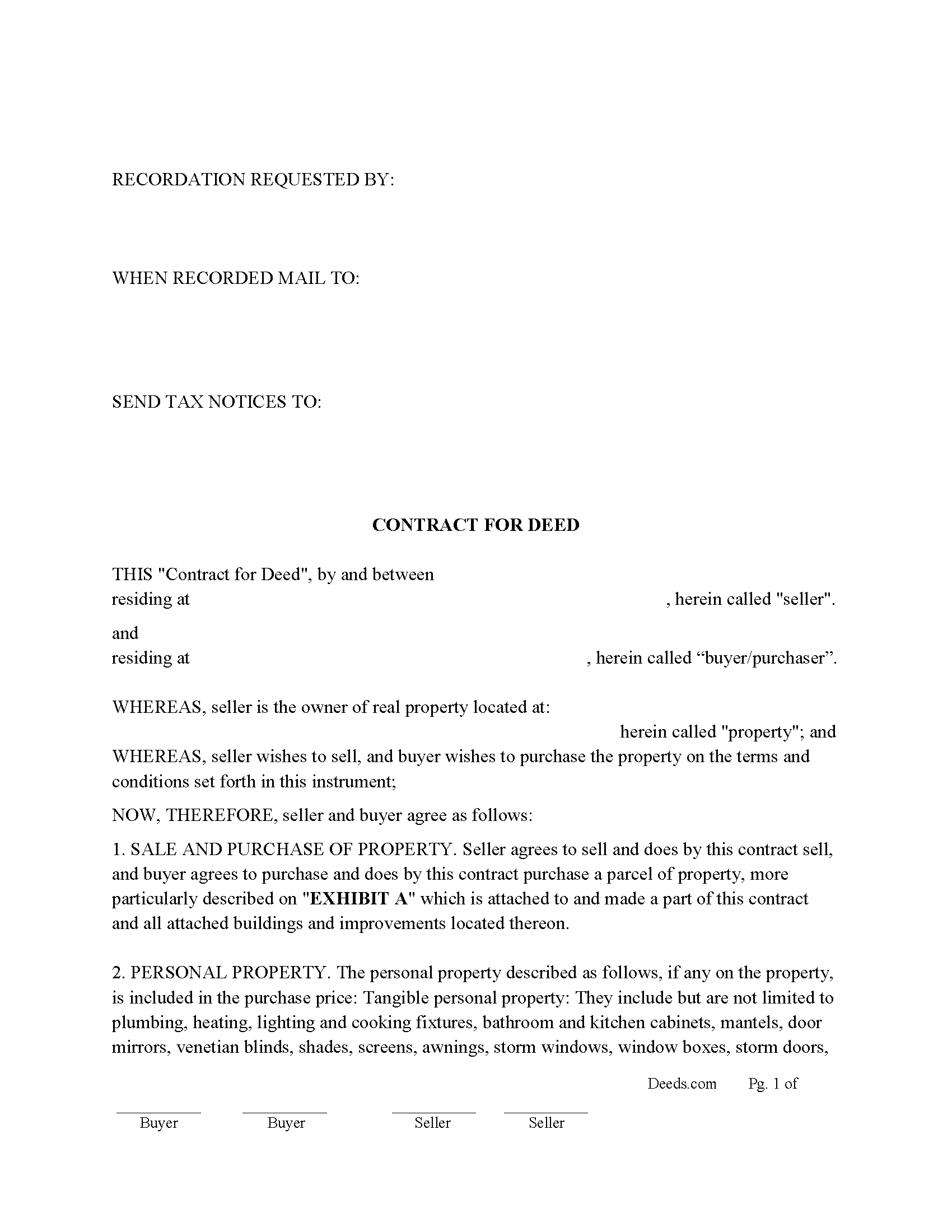Download South Carolina Contract for Deed Legal Forms

South Carolina Contract for Deed Overview

In South Carolina, "Contract for Deed" transactions, also known as land contracts or installment sale agreements, are governed by general property and conveyance laws. Although there is no specific statute exclusively for Contracts for Deed, several sections of Title 27 of the South Carolina Code of Laws are particularly relevant. These laws guide the recording, execution, and enforcement of such contracts, ensuring legal protection for both buyers and sellers.
Key Sections of Title 27 Relevant to Contracts for Deed:
Section 27-3-10: Execution and Acknowledgment of Deeds: This section mandates that deeds and other conveyance documents be executed and acknowledged by the grantor, witnessed by two individuals, and acknowledged before a notary public.
Section 27-7-10: Recording of Conveyances of Real Property This section specifies that deeds, mortgages, and other conveyances of real property must be recorded in the office of the register of deeds in the county where the property is located. Recording provides public notice of the buyer's interest and protects against subsequent claims.
Section 27-39-220: Residential Landlord and Tenant Act – Applicability While primarily focused on landlord-tenant relationships, some provisions may apply to Contracts for Deed, especially those involving residential properties.
Section 27-35-20: Forcible Entry and Detainer This section outlines the procedures for recovering possession of property if a buyer defaults under a Contract for Deed. The seller may need to follow these procedures to regain possession.
Section 27-50-10 et seq.: Residential Property Condition Disclosure Act Although primarily addressing the disclosure of property conditions in traditional sales, this act's principles may be applied to ensure that sellers in a Contract for Deed disclose known property defects to the buyer.
Practical Steps for Compliance: Includes essential terms such as parties' names, property description, purchase price, payment schedule, interest rate, default provisions, and remedies.
Execution and Witnessing: Both parties must sign the contract. The signatures must be witnessed by two individuals who then sign the document as witnesses.
Notarization: Have the contract notarized by a licensed notary public to verify the identities of the signatories and the voluntary nature of their signatures.
Recording the Contract: Submit the notarized and witnessed contract to the county register of deeds office where the property is located for recording.
Pay the required recording fees. Recording the contract provides public notice and helps protect the buyer's equitable interest in the property.
Disclosures: Ensure that the seller discloses any known property defects, following principles similar to those in the Residential Property Condition Disclosure Act.
Default and Remedies: Contract outlines the process for addressing defaults, including notice requirements and grace periods. Specifies remedies available to the seller, such as acceleration of payments, termination of the contract, repossession of the property, and legal actions such as ejectment or foreclosure.
Navigating Contracts for Deed in South Carolina requires careful attention to the relevant laws and proper execution of the agreement. By following these guidelines, both buyers and sellers can ensure their interests are protected and comply with state regulations.
Uses: Residential property, rental 1-4 units, condominiums and planned unit developments.